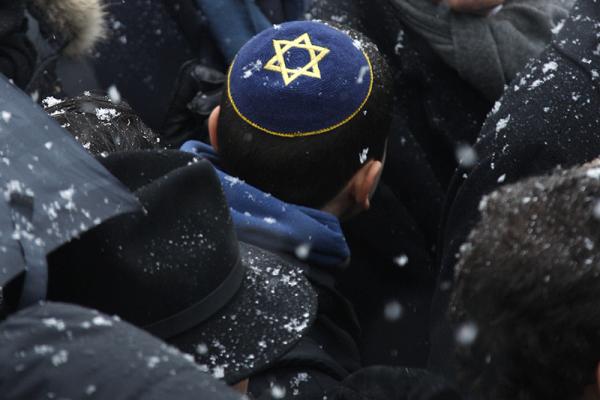Jan 13, 2016
Claude Chiche doesn’t wear a skullcap, but he has strong opinions about them. “There are some here want to take off their kippah because they’re afraid,” said Tunisian-born Chiche, referring to the Hebrew word for yarmulke or skullcap. “But they shouldn’t accept this; they shouldn’t give in to fear.”
Read the Full Article

Already a subscriber? Login
